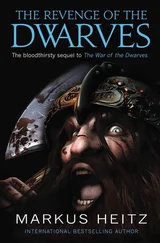Jonathan Coe - The Dwarves of Death
Здесь есть возможность читать онлайн «Jonathan Coe - The Dwarves of Death» весь текст электронной книги совершенно бесплатно (целиком полную версию без сокращений). В некоторых случаях можно слушать аудио, скачать через торрент в формате fb2 и присутствует краткое содержание. Год выпуска: 2008, Издательство: Penguin Books, Жанр: Современная проза, на английском языке. Описание произведения, (предисловие) а так же отзывы посетителей доступны на портале библиотеки ЛибКат.
- Название:The Dwarves of Death
- Автор:
- Издательство:Penguin Books
- Жанр:
- Год:2008
- ISBN:нет данных
- Рейтинг книги:4 / 5. Голосов: 1
-
Избранное:Добавить в избранное
- Отзывы:
-
Ваша оценка:
- 80
- 1
- 2
- 3
- 4
- 5
The Dwarves of Death: краткое содержание, описание и аннотация
Предлагаем к чтению аннотацию, описание, краткое содержание или предисловие (зависит от того, что написал сам автор книги «The Dwarves of Death»). Если вы не нашли необходимую информацию о книге — напишите в комментариях, мы постараемся отыскать её.
The Dwarves of Death — читать онлайн бесплатно полную книгу (весь текст) целиком
Ниже представлен текст книги, разбитый по страницам. Система сохранения места последней прочитанной страницы, позволяет с удобством читать онлайн бесплатно книгу «The Dwarves of Death», без необходимости каждый раз заново искать на чём Вы остановились. Поставьте закладку, и сможете в любой момент перейти на страницу, на которой закончили чтение.
Интервал:
Закладка:
‘What do you mean?’ he said.
‘It was… distorting a bit.’
‘Distorting? Studio E? You’ve got to be joking, mate.’
‘The sound was a bit… muddy.’
‘Muddy? I can’t believe I’m hearing this. That’s the best fucking PA we’ve got, mate, it’s brand new, that is, if you can’t get a good sound out of that you must be fucking useless.’
‘Well, it just sounded…’
‘What was distorting, then? Vocals, was it?’
‘Well, it was mainly the bass sound — ’
‘The bass? What’s that got to do with the PA? What kind of amp was he using?’
‘He doesn’t use an amp, he goes straight into the desk.’
‘Straight into the desk? Are you out of your fucking mind? That’s a vocal PA, that is, mate, you can’t put a bass through there. Was he using a D. I. box?’
‘What?’
‘Was he using a D. I. box?’
‘Well, I’m not sure. I’m only the keyboard player, you see.’
He sighed contemptuously. ‘You know what a D. I. box is , don’t you?’
‘Of course I do,’ I said, with a nervous laugh. He started laughing, too, and we chuckled mirthlessly over the naivety of the question.
‘Well he wouldn’t try to put a bass through a vocal PA without a D. I. box, would he?’ he said, and before I had time to answer, went on, ‘In which case I can only assume that when you tell me that the sound you were getting was “muddy", you must be taking the old wee-wee. It’s fucking immaculate, that PA. You’ve got a Yamaha REV-7 in the outboard rack for your vocal reverb, and a Roland SDE-3000 to give you short delay. You’ve got four dbx 160X compressors and two 27-band Klark Tekniks. You know what those are, don’t you?’
‘Sure. They’re the…’
‘…the graphic equalizers, right.’
‘27-band, eh? Wow.’
‘The whole rig’s powered by C Audio amps, right? It’s a four-way system with Brook Siren crossovers. They’ve all got compression drivers and there’s even an extra cab with a 24-inch sub-woofer. So how the fuck can you be getting a muddy sound out of that lot?’
‘Beats me,’ I said, smiling desperately. ‘Perhaps we forgot to switch it on.’
He ignored this remark.
‘Anyway, you guys must have tried just about every bloody room we’ve got.’
‘Not quite,’ I said. ‘We’ve never used Studio B.’ I got up and walked over to his desk, so that I could see the diary in which he recorded all his bookings. ‘Maybe we should try Studio B. Is anyone using it tonight?’
‘Probably’ he said. ‘It’s very popular, Studio B.’
I tried to look at the diary but he suddenly leant over it, hiding it from view.
‘Why does Chester never book us into Studio B?’ I asked. ‘What’s so special about it?’
‘We’ve been kitting it out,’ he said. ‘Putting a new PA in. It’s not quite ready yet.’
I can’t deny that I had been intrigued by this question for some time. Somewhere in the building — I’m not sure where — was a heavy black door with a big capital B on it. So far as I knew, no band had ever been allowed to use this room, and Vincent was always coming up with contradictory stories about why it wasn’t available. Sometimes it was booked up for the next three weeks, sometimes it was being re-fitted, sometimes it was being used for storage. Sometimes he would give elaborate accounts of the new equipment he was installing there; other times, he would go tight-lipped at the very mention of it.
‘We’re not taking any more bookings for Studio B at the moment,’ he said, snapping the diary shut. ‘You’ll be the first to know when we are.’
I was about to question him further, when we were interrupted by the arrival of Harry, our bass player and lead vocalist. The next few minutes were taken up with getting our instruments out of storage, testing the mikes and starting to set up.
We were in the smallest of the studios, and the one with the lowest roof. Harry, in fact, could barely stand up straight. I can’t think of much to tell you about Harry, except that he was about the most normal and easy-going member of the band. He was an averagely good bass player and an averagely good singer. He played because he enjoyed it, and didn’t have any great ambitions to be a pop star, or any difficult personal hang-ups. This was where he differed from the other two, who arrived together, about ten minutes later.
Martin was an insurance clerk by day and a guitar hero by night. He earned about four times as much as the rest of us (not that this is saying much), and everything he could save out of his income was spent on musical equipment. He had a hand-carved guitar and he would change the strings before every rehearsal. Sometimes he would change them between numbers. His amplifier, which was taller than he was, was worth more than the rest of our equipment put together. It had an absurd control panel which was a blaze of coloured lights and digital displays, and it was kept permanently in store because the four of us were incapable of carrying it anywhere. Lambeth Council could have re-housed half a dozen disadvantaged families in it. All of which would have been fine, if Martin had been a good guitarist; but the fact was that he only knew about five chords and had never managed to improvise a solo in his life. What he lacked in musical ability he made up in technical perfectionism. At one of our gigs, it had once taken him thirty-seven minutes to tune up. He kept us all permanently on a knife-edge because it only needed some tiny, barely detectable flaw in the sound we were getting for him to explode into one of his tantrums. Once, when we were playing in a pub in Leytonstone and had some feedback problems with the vocals, he stormed off stage and was later found to have locked himself in the boot of his car. He had crew-cut hair and an intense expression and he always wore a tie. I never saw him without one.
Then there was our drummer, Jake, a hardline existentialist with a black beret and gold-rimmed National Health glasses. Jake was still a student, doing a part-time degree in philosophy and literature at Birkbeck, I think. He practised in his room by using a copy of Being and Nothingness as a snare and all three volumes of A la Recherche du Temps Perdu as tom-toms. Like Martin, he had his limitations as a musician. He had a huge collection of records featuring some of the most technically adventurous drummers in history — Art Blakey, Elvin Jones, Tony Williams, Jack DeJohnette — but we never managed to teach him to play in any time signature other than 4/4, and he could hardly stray away from the bass drum and the snare without getting hopelessly confused. In fact this was the only drum pattern he knew:

Ask Jake to accompany you on a featherweight version of ‘The Girl From Ipanema’ and that’s the pattern he would have used, at top volume. He used to write songs for the band, too, but we never bothered to play any of them. Somehow his twin passions for metaphysics and pop music never cohered into a satisfactory whole. He would end up writing songs which combined the philosophical complexity of ‘Bat Out Of Hell’ with the raw rock’n’roll energy of Schopenhauer’s The World As Will and Representation. I liked Jake, on the whole, but found him infuriating. If he hadn’t been so intelligent I think he would have been one of the stupidest people I ever met in my life.
It was the first time we had all met up since our last, disastrous gig, so before starting to play we sat around for a while and chatted about it. Morale was low in The Alaska Factory, at this time. We’d been playing live for nearly a year now, and it was beginning to feel as though we hadn’t made an inch of progress. We still had the same hard-core following of about nine people, consisting mainly of relatives and girlfriends. (Madeline, incidentally, had never been to hear us play: in fact she had never even heard one of our tapes. She had never expressed any curiosity, and I didn’t feel strongly enough about our material — most of which was written by either Harry or Martin — to make her listen to any of it. For my part, I never talked about Madeline to the rest of the band. They knew her name and knew that she was my girlfriend, but they had never met her, and I was happy to keep it that way. It satisfied something in me to be leading two completely independent lives. I knew, too, that she wouldn’t have liked them; she wouldn’t have liked the tattiness of Thorn Bird Studios, either, or the places where we used to eat afterwards, or the venues where Chester used to arrange for us to play.) Our hold on the pathetically simple music we used to play remained as fragile as ever. It still wasn’t unknown for us to lose time completely in the middle of a twelve-bar blues. And the thing that we were all holding out for, that mirage, the holy grail which is the gleam in the eye of every aspiring band — a recording contract — seemed, as usual, to be utterly beyond our reach.
Читать дальшеИнтервал:
Закладка:
Похожие книги на «The Dwarves of Death»
Представляем Вашему вниманию похожие книги на «The Dwarves of Death» списком для выбора. Мы отобрали схожую по названию и смыслу литературу в надежде предоставить читателям больше вариантов отыскать новые, интересные, ещё непрочитанные произведения.
Обсуждение, отзывы о книге «The Dwarves of Death» и просто собственные мнения читателей. Оставьте ваши комментарии, напишите, что Вы думаете о произведении, его смысле или главных героях. Укажите что конкретно понравилось, а что нет, и почему Вы так считаете.












